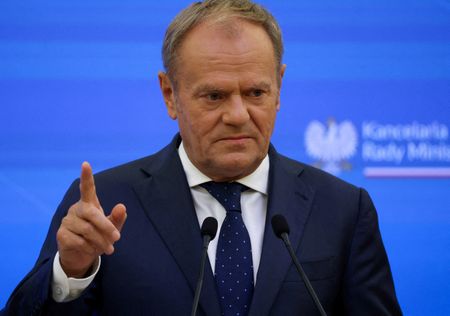By Indradip Ghosh
(Reuters) -Euro zone business activity grew steadily this month as services expanded at the quickest pace in 1-1/2 years, while weak demand sent manufacturing back into contraction territory, a private survey showed.
The 20-nation bloc has shown economic resilience despite high global uncertainty since the start of the year, and improving business confidence suggests the momentum is likely to remain intact.
The HCOB Flash Eurozone Composite PMI, compiled by S&P Global, declined slightly to 52.4 in November from a more-than two-year high of 52.5 in October, just shy of a Reuters poll forecast for 52.5 but marking its 11th consecutive month above the 50.0 mark that separates growth from contraction.
“The service sector in the euro zone is a ray of hope. Although business activity growth in Germany has slowed significantly, French service providers have returned to growth. All in all, the euro zone is more or less maintaining its relatively robust expansion rate,” said Cyrus de la Rubia, chief economist at Hamburg Commercial Bank.
“Although the manufacturing sector is dampening growth performance, the high weight of the service sector in the overall economy means that the euro zone as a whole should grow faster in the final quarter than in the third quarter.”
The services PMI rose to 53.1 from 53.0 in October, its highest since May 2024 and better than 52.8 predicted in the Reuters poll.
But manufacturing activity contracted after remaining at the break-even point the previous month. The sector’s headline PMI declined to 49.7 this month from 50.0 in October, its lowest since June and below the Reuters poll prediction of 50.2. Weak demand led factories to cut jobs at their fastest rate in seven months.
Meanwhile, overall input costs rose at their quickest rate since March, but firms largely absorbed them. Output prices increased at their weakest pace in over a year.
Overall inflation in the shared-currency bloc has remained persistently around the European Central Bank’s 2% target. That, along with a steady economic outlook, is widely expected to keep key interest rates on hold for a long period.
(Reporting by Indradip Ghosh; Editing by Hugh Lawson)











